FIATA HQ Meeting 2022 Recap: Day 2
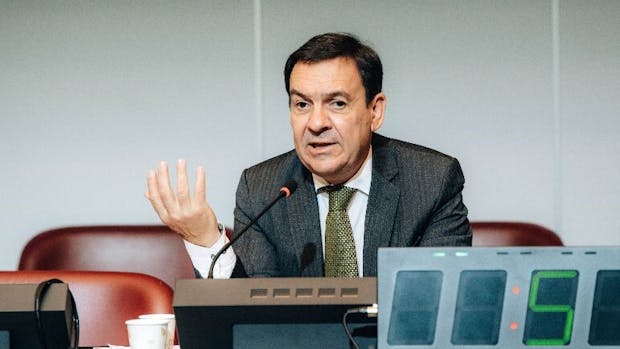
Day 2 of the FIATA HQ Meeting saw a large array of sessions, with a lot of ground covered. The day started bright and early, with the Multimodal Transport Institute (MTI) Session setting the stage. FIATA is particularly pleased to have welcomed WTO Deputy Director General Mr Jean-Marie Paugam, to join the panel and share on the trade outlook for FIATA members amongst a great line-up of speakers.
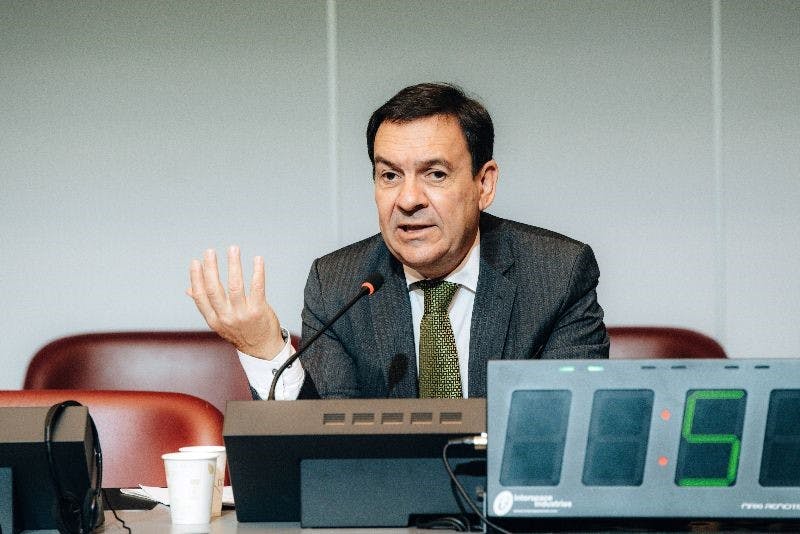
The following session was the Advisory Body on Information Technology, which featured the launch of the paperless FIATA Bill of Lading, accompanied by a press release. The Advisory Body on Safety and Security session featured the largest session panel of the Meeting after lunch, with an exciting dialogue on the safety issues facing the freight forwarding industry at present, followed by a fact-packed overview of the security of containers worldwide.
The day ended with the Air Freight Institute session, featuring a lively discussion on the ebb and flow of the airfreight sector over the last decades, with guest speakers Glyn Hughes of TIACA and Brendan Sullivan of IATA bouncing nicely off each other for a rounded and informative coverage of the cargo situation on and off the apron. James Hookham of the Global Shippers Forum joined the discussion from the shippers perspective, to compliment the cargo situation update on that side. Harmony in its approach to restarting post-COVID business was a key theme of the Air Freight Institute session.
Each session, as yesterday, featured a poll which allowed audience members to take part interactively, and join the dialogue from their respective associations.
MTI Session '2022: The Year of All Dangers - Impacts for Global Supply Chains?'
The session began with a summary by Andrea Tang, MTI Manager, on the activities of the Institute. Each Chair then shared an update on the respective Working Group's (WG) progress and challenges, including Ole Hagen of WG Rail, Jens Roemer of WG Sea and Tomas Suhanyi of WG Road. The MTI Manager then gave an update on behalf of WG Sustainable Logistics, which was dissolved at the end of 2021 to allow for better horizontal integration on the topic of sustainability directly within each of the modes of transport.
FIATA then heard from Jean-Marie Paugam, Deputy Director General of the World Trade Organization (WTO) on the fruitful relations the two organisations have had on global supply chains, particularly since FIATA's move to Geneva, with a focus on impacts to developing countries, landlocked countries and trade facilitation. The WTO promised continued collaboration and interest in FIATA's activities, listening to the challenges of freight forwarders raised by the Federation. He continued, sharing that the global outlook is difficult, with the pandemic rearing its head again in Asia, increasing interest rates and the war in Europe. The impacts of recent events have threatened to fragment global trade, noting that governmental restrictions during the pandemic made border trade impossible in many regions and negatively impacted growth. Nevertheless, the WTO still forecasts a recovery of 4.7% for this year. He emphasised the importance of a dialogue between the public and private international stakeholders, and that collaboration is key for global trade, as well as addressing the future in light of the need for digitalisation and decarbonisation.
James Hookham of the Global Shippers' Forum (GSF) shared about the lack of services in the sector, causing chaos globally. He pointed out that a possible restructuring of supply chains would be required to continue growth. In this rapidly changing and highly volatile environment, he emphasised that we should take the opportunities we can for growth, working around commercial opportunities and continue to keep pressure on the governments with regional and global representatives, to ensure that carrier responses are appropriate and contribute to the goal of global trade.
Philip van der Bosch of the International Union of Railways (UIC) shared the perspective of rail transport, which was also hard hit by the pandemic due to limited border crossings and sanitary restrictions. This transport mode was however also very resilient and could respond quickly to restrictions. He noted that with the northern corridor coming to a standstill, flows have been moving to the southern corridor, and that more collaboration was needed to facilitate this. He emphasised the need for collaboration to support the supply chain, which is ultimately multimodal, and the need for interoperability within and between modes.
International Road Transport Union (IRU) speaker Kazem Asayesh described the road transport situation, which was not immune from pandemic-caused problems. Sanitary conditions for drivers during this time were noted to be abysmal, and border crossings were chaotic, with test requirements causing backlogs for weeks. The road transport sector lost USD 2 trillion during COVID-19. Delivery times became unpredictable, and new corridors had to be found, and this has been exaggerated by the Eastern European war. The main challenge experienced by the road sector in recent times has been the fuel crisis during the Ukraine war, and SMEs are expected to particularly suffer due to this. Opportunities regarding corridors that had previously been overlooked were noted, and in particular the shift to the middle and southern corridors.
All speakers reiterated the importance of digitalisation and collaboration in overcoming the challenges of the multimodal sector. Trade facilitation, digitalisation and decarbonisation will be crucial to prepare for the future.
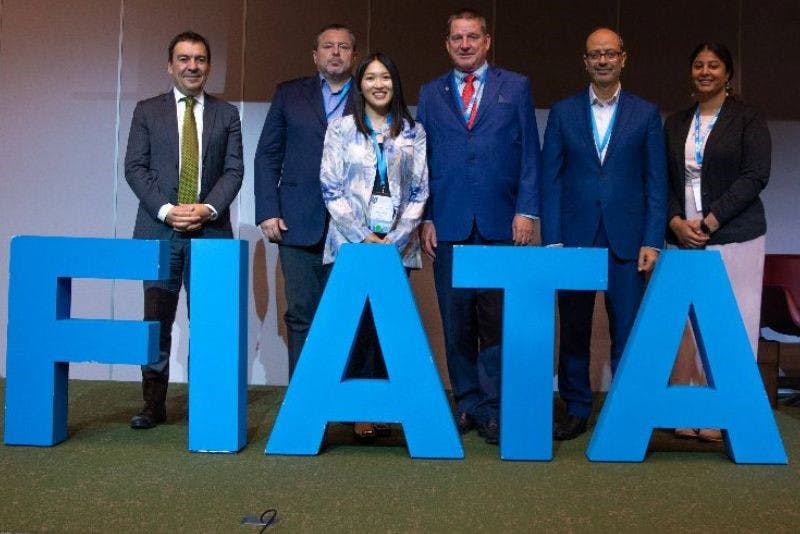
ABIT Session on 'What is Needed to Achieve Supply Chain Digitalisation? Addressing the Technical and Operational Challenges: Data Ownership, Data Governance and the Need for Strong Security Infrastructure'
The ABIT session started with a summary of the body’s activity over the past year. A quick update was given on the four priorities set by the body during the last FIATA week:
- FBL Digitalisation: a successful Proof of Concept, run last year, allowed the finalisation of the implementation of the solution, which was officially launched just after the ABIT session. Find out more on the Paperless FIATA BL solution in our press release.
- Freight-Pay: the online payment platform for FIATA members was launched on 1 July 2021. It has been promoted to members through several communication activities.
- Interoperability: FIATA focused on building relationships with different key industry organisations to collaborate on the standardisation of the digitalisation of international trade, and to ensure interoperability with all actors of the supply chain.
- Share new technology advances: FIATA organised two high-level dialogues and published 2 articles in the latest FIATA Review (pages 10, 12 & 16) on key digitalisation topics: digital standards and cybersecurity.
A rich, open discussion followed with participation of industry experts: Anil John from the US Department of Homeland Security, Christian Gyntelberg from the DCSA, Henk Mulder from IATA and Guy de Pourtales of FIATA.
Key topics like adoption of electronic bills of lading, data exchange and data governance/ownership were discussed. The main challenge preventing the adoption of electronic bill of lading was identified as the lack of legal recognition, while the main challenge refraining companies to share data with third parties is trust.
While the legal recognition of electronic documents is still a big issue in many countries, the fact that the UK is moving ahead with its Electronic Trade Documents Bill is encouraging, as much of world trade is underpinned by English law.
The urgency for industry actors to go digital was highlighted as key to remain relevant. The new generations are digital natives and will likely be reluctant to handle paper based processes.
The session ended with the official launch of a Freight-Pay competition for FIATA National Associations. The scope is for National Associations to enroll a maximum number of members on the platform (Highest number of registrations from members wins):
- 1st prize: 2x flights + tickets for 2022 FIATA World Congress
- 2nd prize: 1x free pass for 2023 FIATA HQ Meeting + 4 hotel nights
- 3rd prize: Finest premium Swiss chocolate assortment
Regular reports of progress will be shared through FIATA communication channels.
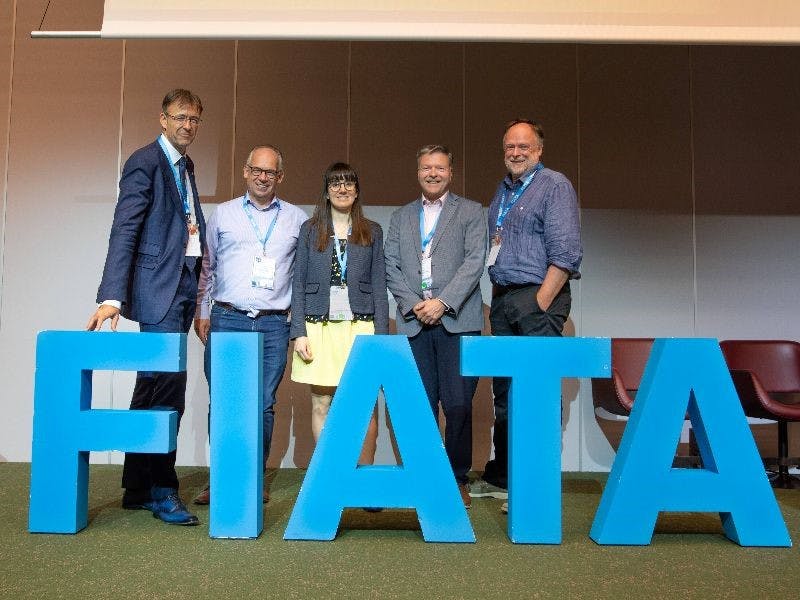
ABSS Session ‘Practical Actions to Improve Safety and Security in the Supply Chain: Promoting Safety in Container Shipping’ and ‘The Challenges of Cargo Crime’
The guest speakers of this session made up the largest in-presence panel of high-level speakers at this HQ Meeting, with Ms Asli Çalik from IRU, Ms Nicole Quijano Evans from UNODC, Mr Peregrine Storrs-Fox of the TT Club, and Mr Lukasz Wyrowski of the UNECE in presence, with Mr Bill Brassington of the ICHCA taking part online. The first part of the discussion was focused on safety in the supply chain, and in particular dangerous goods incidents, which may seriously impact people, environment, and business when they occur. Causes of such incidents, despite the existing regulatory framework were discussed by the panel – pinpointing the serious challenges posed by the lack of understanding and knowledge, mostly in the packing procedure.
The UNECE pointed out the urgent need to look at the national framework and understand them: the fact that some national regulations do not follow the international ones as well as the best practices/guidance increase the risk of safety issues within the supply chain. The speakers then discussed some solutions which could be considered by the industry, namely better grasping the elements of the Code of Practice for Packing of Cargo Transport Units (CTU Code) and some innovative ideas around it to make it more accessible. The work of the Cargo Integrity Group – which FIATA recently joined – will be crucial in this respect. The speakers, and more particularly IRU, emphasised the importance of training with respect to handling of dangerous goods – a priority which was fully shared by the audience composed of FIATA members. As a final word on safety, TT Club, UNECE, ICHCA and UNODC representatives highlighted that the responsibility must be shared all along the supply chain including all actors – therefore it is crucial to improve it on all ends.
The second part of the discussion focused on supply chain security challenges, with particular emphasis on cargo crime: experts shared the observation that criminality is becoming ever more sophisticated, with recent successful infiltration in the supply chain – as such, the industry has to be even more attentive to the diverse modi operandi when it comes to cargo theft, which most often occurs during transit – indeed, the TT Club and IRU reported that 76% of cargo theft is from cargo warehouses. Working on reducing transit time would be one of the solutions to counter these criminal activities. The way forward to mitigate this serious threat lies in increased and better collaboration with different agencies, including public and private sectors. As a concluding remark, panellists highlighted the crucial importance to build trust and open a better dialogue among the various stakeholders, and in particular between private sector and authorities, to share as much information as possible.
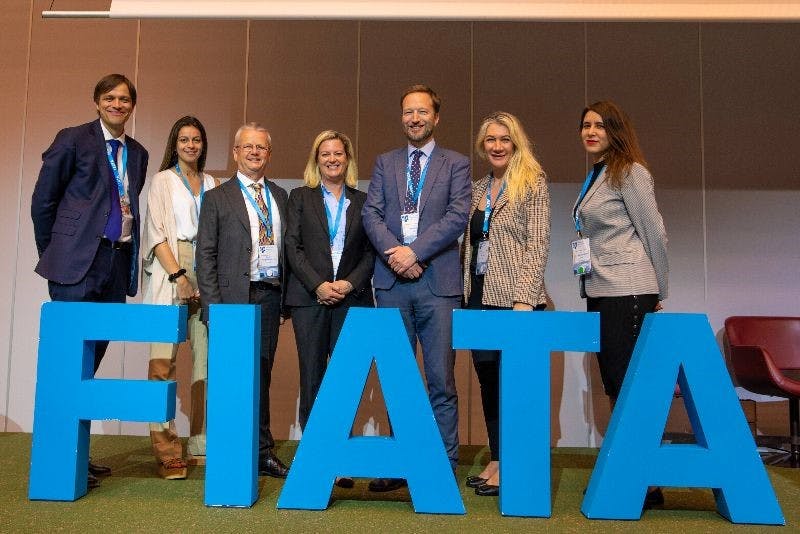
AFI Session 'Business Recovery (eCommerce, Digitalisation, COVID, etc.)' and 'Pre-Loading Advance Cargo Information (PLACI)'
In this final session of the day, AFI Chair, Dawit Woubishet of Ethiopia reported on the achievements of the past year which were made through collaborative efforts with industry bodies like IATA and ICAO whose representatives, Brendan Sullivan, Global Head of Cargo at IATA, Cortney Robinson, Air Transport Officer at ICAO, Glyn Hughes, Director General at TIACA, and James Hookham, Secretary General at the Global Shippers Forum, contributed to the discussion. The rise in air fuel costs, the swift and significant contribution of the air cargo industry in keeping vaccines and critical supplies during the pandemic and need for digitalisation were key themes discussed.
Keen insights were also provided by Glyn Hughes, Director General of TIACA who highlighted that with air cargo volumes increasing, the industry has to cope with different capacity needs and therefore will need new regulations, different from the ones conceived to govern passenger traffic. In terms of government revenue, air cargo was eight times more profitable compared to tourism. He noted the need for regulators to get involved and ensure the supply chain was made viable for all actors, many of whom, like forwarders, operated with thin margins. Brendan Sullivan noted the difficult operating environment which has seen jet fuel prices go up by 100%, and the staggered recovery across the regions. Both underlined the importance of digitalisation, and safety and security.
Concerns were raised about the entry of shipping carriers into the air cargo business and investing in legacy airline companies to which the panel responded positively. They saw plenty of opportunity for forwarders to help MSMEs from landlocked countries and smaller ports to use air cargo to access global supply chains.
Industry leaders are encouraged to take note and prepare for the regulatory changes expected in the near future regarding advanced cargo information, which will take effect in Europe in March 2023, and which is expected in a number of other jurisdictions.
An important take away from the session was that freight forwarders, if agile and flexible, are here to stay, as any asset owner who thinks they can replicate the entire global knowledge bank of a forwarder spanning worldwide logistics options, customs regulations and cost effectiveness is setting themselves up for failure. The importance of highlighting the value of air cargo and the role of the freight forwarder was a recurring topic during the discussions. To the question of what the key priorities for freight forwarders should be, the speakers noted the need for continued focus on safety and security, digital connectivity, eCommerce, and showcasing that freight forwarders are the troubleshooters in the supply chain.
